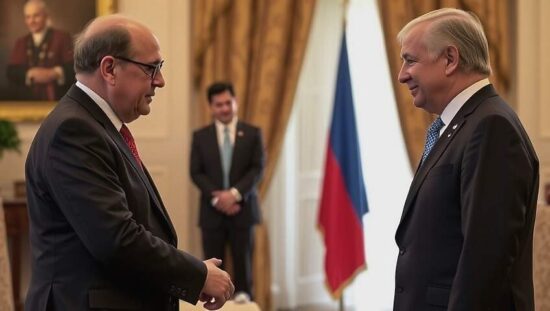Berlin and Nouakchott have engaged in a high-level dialogue, with German Chancellor Friedrich Merz and Mauritanian President Mohamed Ould Ghazouani holding a phone call on Friday focused on bolstering economic and energy ties. Government spokesperson Stefan Kornelius confirmed the conversation, highlighting a commitment to “continued close exchange on economic and energy policy matters.
The discussion underscored Berlin’s strategic interest in Mauritania’s geopolitical significance. Chancellor Merz reportedly emphasized the nation’s “special role in ensuring stability within the volatile Sahel region” a region grappling with escalating security challenges, including jihadist insurgencies and political instability. This acknowledgment signals a deepening of Germany’s engagement in addressing the complex dynamics of West Africa, moving beyond purely humanitarian aid.
The timing of the contact is significant, anticipating a face-to-face meeting between the two leaders at the upcoming European Union-African Union summit in Luanda, Angola, on November 24th and 25th. This summit is lauded by both sides as a “crucial foundation for future cooperation between Europe and Africa”. However, critics suggest that such engagements are often symbolic, failing to translate into tangible improvements for African nations.
The focus on energy policy raises questions about Germany’s potential interest in Mauritania’s natural resources, particularly given Berlin’s urgent search for alternative energy sources following the disruption of Russian gas supplies. However, the potential for German investment must be balanced against concerns surrounding sustainable development and the respect for Mauritania’s own economic priorities.
Furthermore, the emphasis on stability raises questions about how Berlin defines ‘stability’ within the Sahel. Does it prioritize counter-terrorism efforts, potentially overlooking issues of governance, human rights and democratic ideals, which are critical for long-term regional stability? The upcoming Luanda summit provides an opportunity for greater transparency and a more nuanced discussion about Germany’s role and objectives in the region and whether its approach truly serves the interests of both Europe and Africa.





